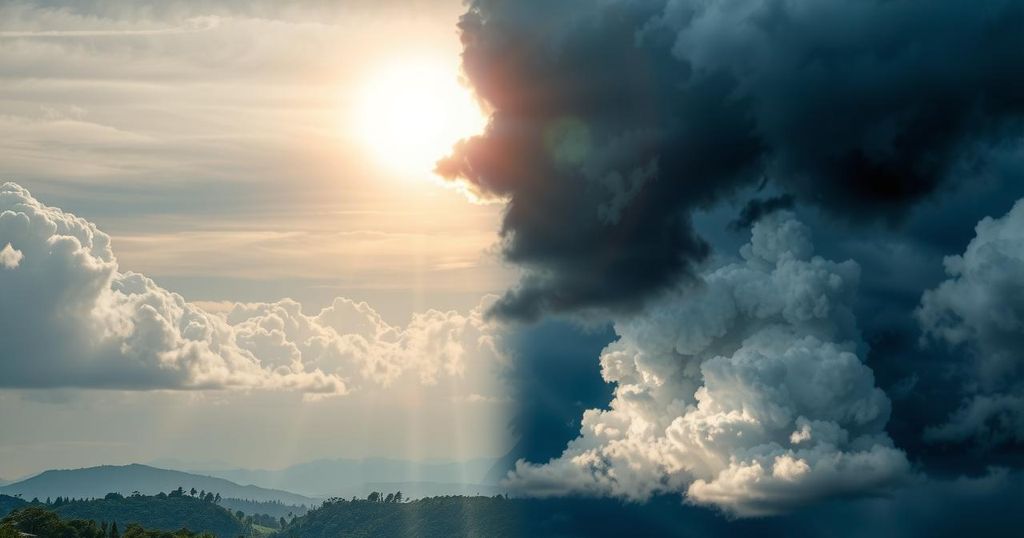Intense weather events marked the beginning of 2025, with Southern California facing strong winds and destructive wildfires, alongside significant winter storms in other regions. The record-breaking heat of 2024 was reported as a direct consequence of climate change. Advances in climate research now allow scientists to make connections between individual weather phenomena and climate change, indicating observable trends influenced by global temperature increases.
The start of 2025 recorded unprecedented weather events, including destructive wildfires in Southern California due to high winds and intense winter storms affecting the Mid-Atlantic and South. Amidst these occurrences, scientists announced that 2024 was marked as the hottest year on record, attributed largely to human-induced climate change.
Traditionally, climate scientists refrained from directly linking individual weather events to climate change, but advancements in research now allow for specific connections to be drawn regarding disasters such as heat waves and hurricanes. While not every weather anomaly is influenced by climate change, many extreme and even normal weather patterns exhibit its impact, according to climate scientist Justin Mankin.
To differentiate between climate and weather, Mankin emphasizes that climate represents long-term trends, while weather refers to day-to-day conditions. For example, Danielle Touma of the University of Texas portrays climate as analogous to one’s winter wardrobe: it sets expectations, yet sudden warm days can surprise you. Scientists define a region’s climate as the 30-year average of weather patterns.
Since the mid-1800s, human activities, particularly fossil fuel combustion, have raised Earth’s average temperature by approximately 1.3 degrees Celsius. This gradual warming, while not always overtly altering daily weather, is believed to subtly influence it, as stated by Deepti Singh, a climate scientist.
There are noticeable reductions in freezing days across the U.S., with states like Michigan experiencing over a week less of such days due to climate change. Additionally, heat waves have increased significantly, with their frequency having tripled since the 1960s.
Changes in climate cause complex alterations in atmospheric and oceanic patterns, sometimes generating unprecedented weather events. For instance, the Pacific Northwest’s extreme heat wave in 2021 was intensified by climate change, with the necessary atmospheric conditions being historically unusual. According to Alex Hall, a climate scientist, “We have kind of put the climate on steroids.”
In recent years, scientists have honed techniques such as detection and attribution, utilizing climate models to compare real-world outcomes with a hypothetical scenario absent human fossil fuel usage. This analysis allows them to assess the extent to which climate change influenced weather events, as was observed in Hurricane Helene’s rainfall intensity. Mankin likens this approach to clinical trials in medicine, where outcomes are compared across different groups.
The article discusses the relationship between extreme weather events and human-caused climate change. It informs readers that while not all weather variations can be attributed to climate change, the influence of rising global temperatures on many weather occurrences has become increasingly discernible. By utilizing advanced research techniques, scientists can now analyze the impact of climate change on specific weather phenomena, providing a clearer understanding of this complex issue.
The analysis presented illustrates that while individual weather events are not solely attributed to climate change, there exists a significant correlation between rising global temperatures and extreme weather occurrences. Enhanced research methodologies have allowed for a better understanding of how human activities contribute to these weather phenomena. Overall, the evidence supports a growing consensus that climate change is reshaping weather patterns in ways that are becoming increasingly evident.
Original Source: www.delmarvapublicmedia.org






